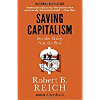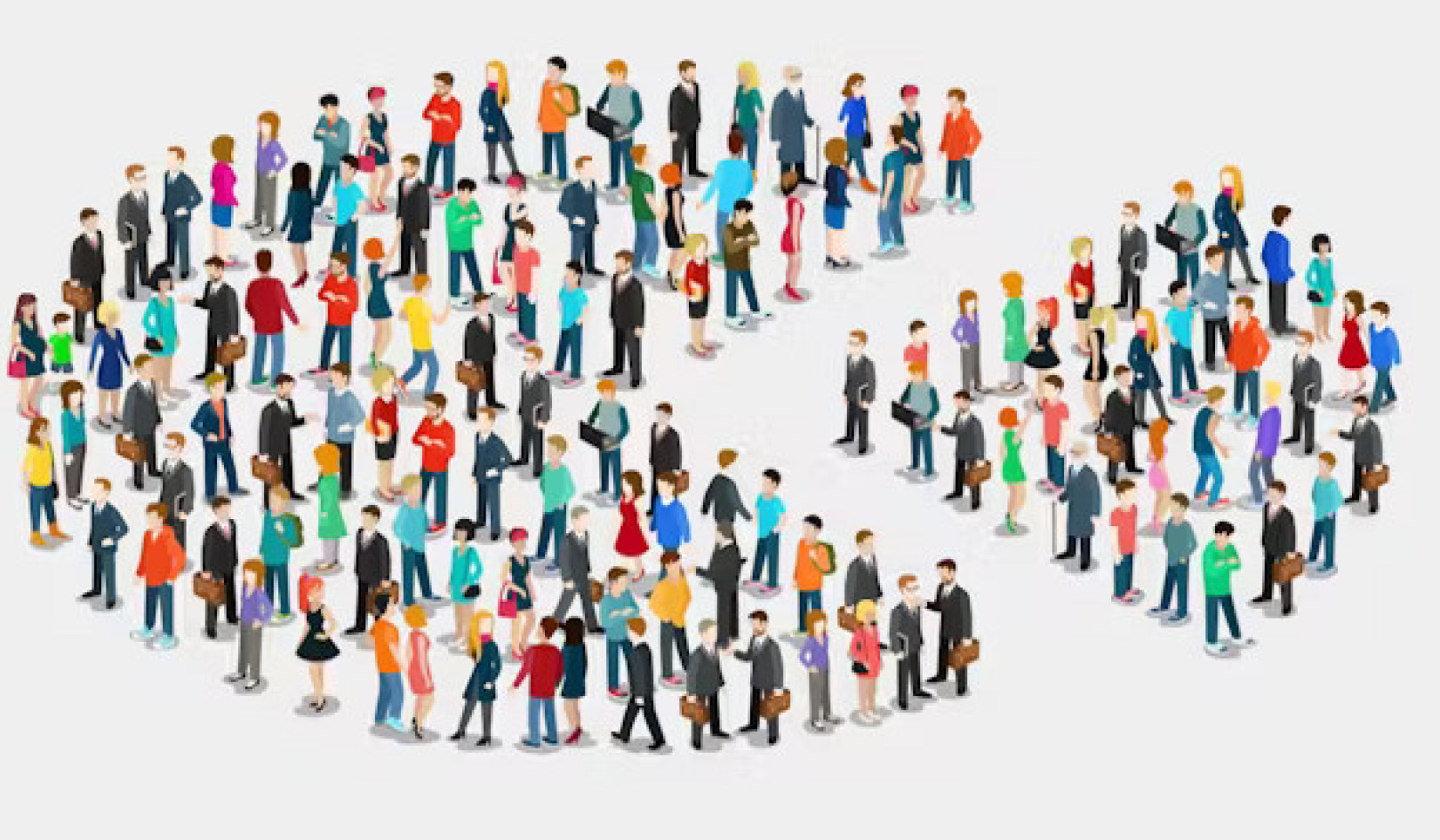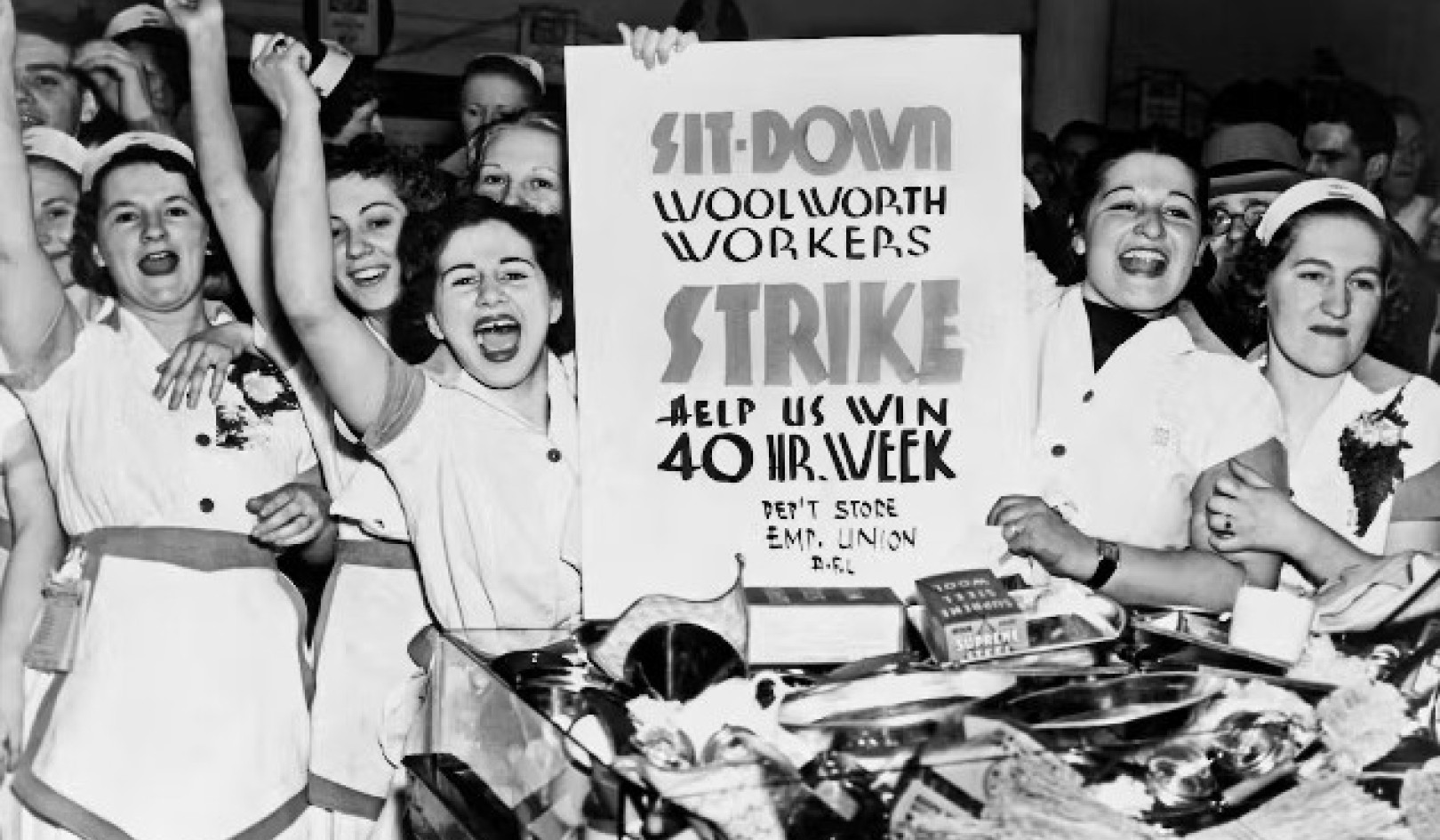Why do we glorify “self-made” billionaires?
Well, being “self-made” is a seductive idea —it suggests that anybody can get to the top if they’re willing to work hard enough. It’s what the American Dream is all about.
If Kylie Jenner can become a “self-made” billionaire at age 21, so can you and I!
Even as wages stay stagnant and wealth inequality grows, it’s a comfort to think that we’re all simply one cosmetics company and some elbow grease away from fortune.
Unfortunately, a nice idea is all it is. Self-made billionaires are a myth. Just like unicorns.
The origins of self-made billionaires are often depicted as a “rags-to-riches” rise to the top fueled by nothing but personal grit and the courage to take risks — like dropping out of college, or starting a business in a garage.
But in reality, the origins of many billionaires aren’t so humble. They’re more “riches-to-even-more-riches” stories, rooted in upper-middle class upbringings.
How much risk did Bill Gates take on when his mother used her business connections to help Microsoft land a deal-making software for IBM?
Elon Musk came from a family that owned an emerald mine during the time of Apartheid South Africa.
Jeff Bezos’ garage-based start was funded by a quarter-million dollar investment from his parents.
If your safety net to joining the billionaire class is remaining upper class – that’s not pulling yourself up by your bootstraps.
Nor is failing to pay your fair share of taxes along the way.
Along with Musk and Bezos, Michael Bloomberg, George Soros, and Carl Icahn have all gotten away with paying ZERO federal income taxes some years. That’s a big helping hand, courtesy of legal loopholes and American taxpayers who pick up the tab, all while our tax dollars subsidize the corporations owned by these so-called “self-reliant” entrepreneurs.
Did you get a thank you card from any of them? I sure as hell didn’t.
Other common ways that billionaires build their coffers off the backs of others include paying garbage wages and subjecting workers to abusive labor conditions.
But portraying themselves as rugged individuals who overcame poverty or “did it on their own” remains an effective propaganda tool for the ultrawealthy. One that keeps workers from rising up collectively to demand fairer wages – and one that ultimately distracts from the role that billionaires play in fostering poverty in the first place.
Billionaires say their success proves they can spend money more wisely and efficiently than the government. Well they have no problem with government spending when it comes to corporate subsidies.
When arguing for even more tax breaks, they claim each “dollar the government takes from [them] is a dollar less” for their “critical” role in expanding prosperity for all Americans, through job creation and philanthropy. Well that’s rubbish.
50 years of tax cuts for the wealthy have failed to trickle down. As a result of Trump’s tax cuts, 2018 saw the 400 richest American families pay a lower tax rate than the middle class. And U.S. billionaire wealth grew by $2 trillion during the first two years of a pandemic that was economically catastrophic for just about everyone else. They want to have their cake, everyone else’s cake, and eat it, too.
Behind every ten-figure net worth is systemic inequality. Inherited wealth. Labor exploitation. Tax loopholes. And government subsidies.
To claim these fortunes are “self-made” is to perpetuate a myth that blames the wealth gap on the choices of everyday Americans.
Billionaires are not made by rugged individuals. They’re made by policy failures. And a system that rewards wealth over work.
Know the truth.
About the Author
 ROBERT B. REICH, Chancellor’s Professor of Public Policy at the University of California at Berkeley, was Secretary of Labor in the Clinton administration. Time Magazine named him one of the ten most effective cabinet secretaries of the last century. He has written thirteen books, including the best sellers “Aftershock" and “The Work of Nations." His latest, "Beyond Outrage," is now out in paperback. He is also a founding editor of the American Prospect magazine and chairman of Common Cause.
ROBERT B. REICH, Chancellor’s Professor of Public Policy at the University of California at Berkeley, was Secretary of Labor in the Clinton administration. Time Magazine named him one of the ten most effective cabinet secretaries of the last century. He has written thirteen books, including the best sellers “Aftershock" and “The Work of Nations." His latest, "Beyond Outrage," is now out in paperback. He is also a founding editor of the American Prospect magazine and chairman of Common Cause.
Books by Robert Reich
Saving Capitalism: For the Many, Not the Few -- by Robert B. Reich
 America was once celebrated for and defined by its large and prosperous middle class. Now, this middle class is shrinking, a new oligarchy is rising, and the country faces its greatest wealth disparity in eighty years. Why is the economic system that made America strong suddenly failing us, and how can it be fixed?
America was once celebrated for and defined by its large and prosperous middle class. Now, this middle class is shrinking, a new oligarchy is rising, and the country faces its greatest wealth disparity in eighty years. Why is the economic system that made America strong suddenly failing us, and how can it be fixed?
Click here for more info or to order this book on Amazon.
Beyond Outrage: What has gone wrong with our economy and our democracy, and how to fix it -- by Robert B. Reich
 In this timely book, Robert B. Reich argues that nothing good happens in Washington unless citizens are energized and organized to make sure Washington acts in the public good. The first step is to see the big picture. Beyond Outrage connects the dots, showing why the increasing share of income and wealth going to the top has hobbled jobs and growth for everyone else, undermining our democracy; caused Americans to become increasingly cynical about public life; and turned many Americans against one another. He also explains why the proposals of the “regressive right” are dead wrong and provides a clear roadmap of what must be done instead. Here’s a plan for action for everyone who cares about the future of America.
In this timely book, Robert B. Reich argues that nothing good happens in Washington unless citizens are energized and organized to make sure Washington acts in the public good. The first step is to see the big picture. Beyond Outrage connects the dots, showing why the increasing share of income and wealth going to the top has hobbled jobs and growth for everyone else, undermining our democracy; caused Americans to become increasingly cynical about public life; and turned many Americans against one another. He also explains why the proposals of the “regressive right” are dead wrong and provides a clear roadmap of what must be done instead. Here’s a plan for action for everyone who cares about the future of America.
Click here for more info or to order this book on Amazon.
Books on Inequality from Amazon's Best Sellers list
"Caste: The Origins of Our Discontents"
by Isabel Wilkerson
In this book, Isabel Wilkerson examines the history of caste systems in societies around the world, including in the United States. The book explores the impact of caste on individuals and society, and offers a framework for understanding and addressing inequality.
Click for more info or to order
"The Color of Law: A Forgotten History of How Our Government Segregated America"
by Richard Rothstein
In this book, Richard Rothstein explores the history of government policies that created and reinforced racial segregation in the United States. The book examines the impact of these policies on individuals and communities, and offers a call to action for addressing ongoing inequality.
Click for more info or to order
"The Sum of Us: What Racism Costs Everyone and How We Can Prosper Together"
by Heather McGhee
In this book, Heather McGhee explores the economic and social costs of racism, and offers a vision for a more equitable and prosperous society. The book includes stories of individuals and communities who have challenged inequality, as well as practical solutions for creating a more inclusive society.
Click for more info or to order
"The Deficit Myth: Modern Monetary Theory and the Birth of the People's Economy"
by Stephanie Kelton
In this book, Stephanie Kelton challenges conventional ideas about government spending and the national deficit, and offers a new framework for understanding economic policy. The book includes practical solutions for addressing inequality and creating a more equitable economy.
Click for more info or to order
"The New Jim Crow: Mass Incarceration in the Age of Colorblindness"
by Michelle Alexander
In this book, Michelle Alexander explores the ways in which the criminal justice system perpetuates racial inequality and discrimination, particularly against Black Americans. The book includes a historical analysis of the system and its impact, as well as a call to action for reform.



























